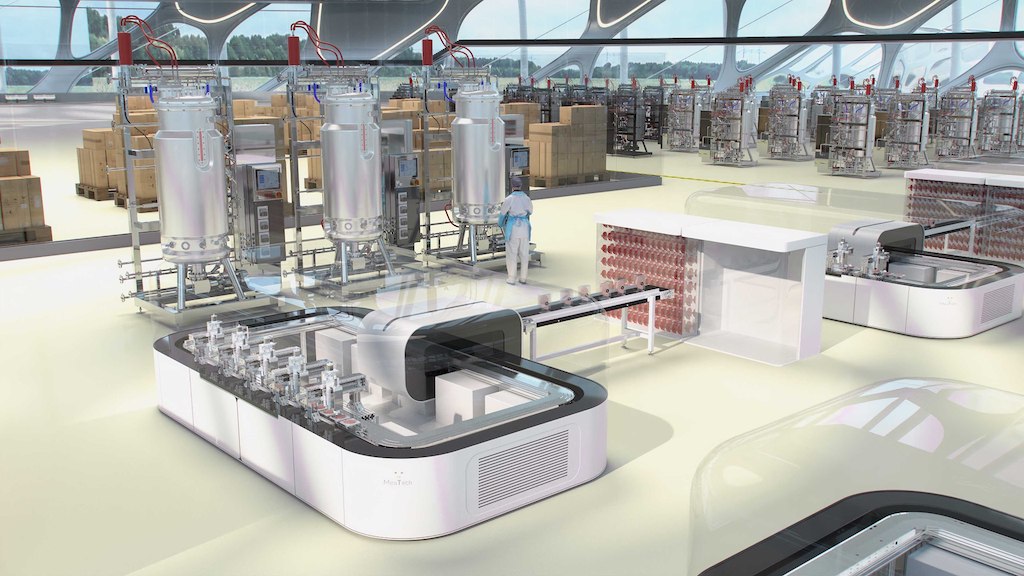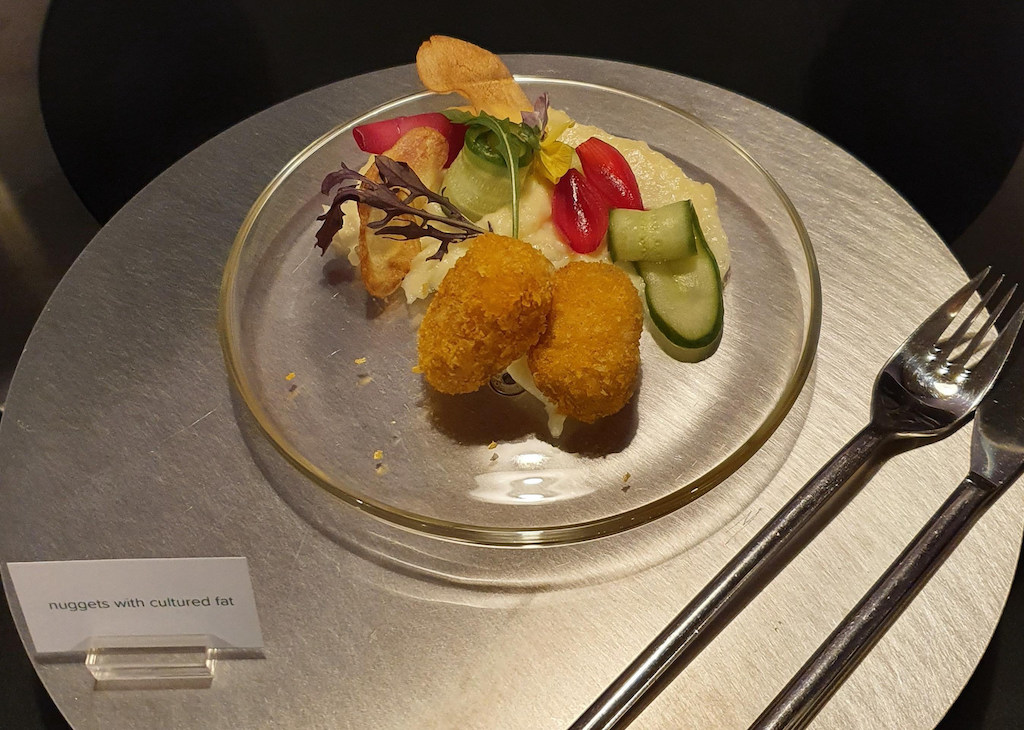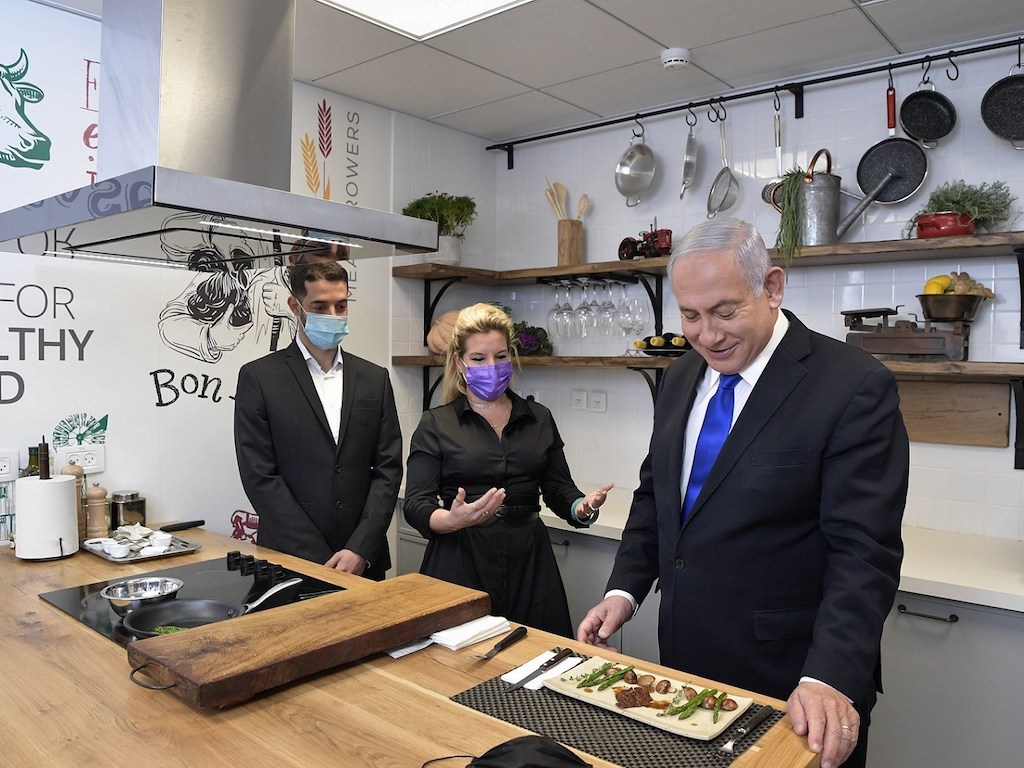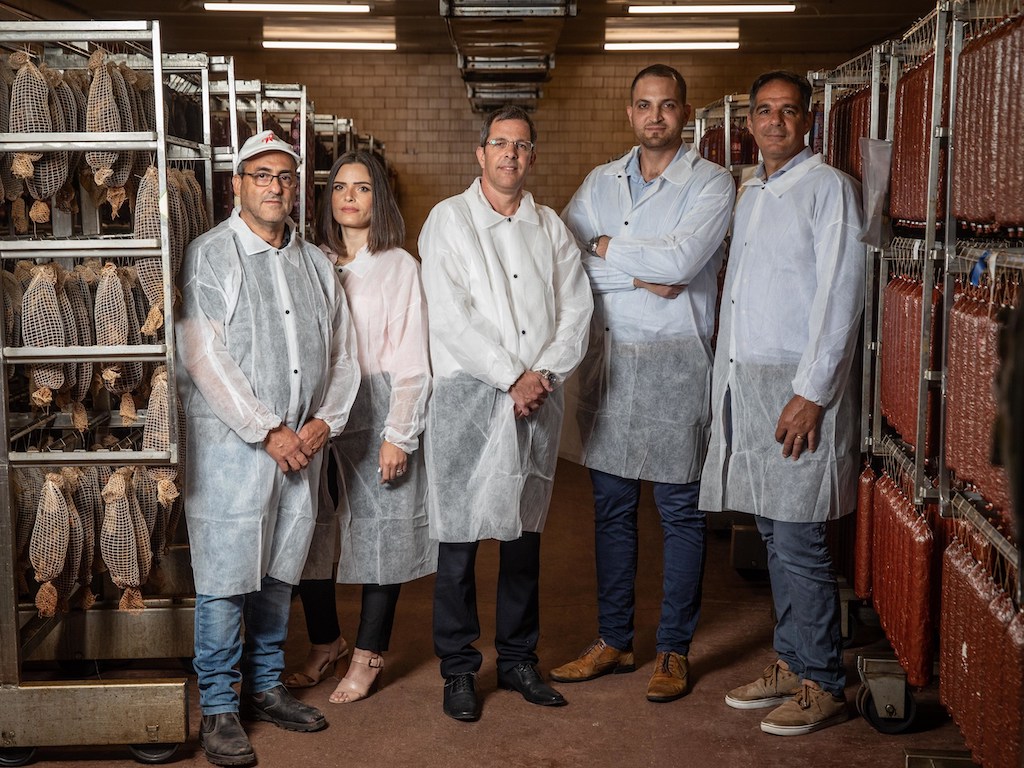4 Mins Read
Shortly after entering the cell-based pork sector, MeaTech has forged a new partnership with pork giant Tiv Ta’am. Together, the two companies will jointly develop new cell-based meat products, construct a new factory, and deliver sustainable, slaughter-free meat to diners.
Ness Ziona-based MeaTech is now collaborating with Tiv Ta’am, a major supermarket chain and Israel’s biggest non-kosher pork and meat producer. Signing an agreement last week, the two companies are teaming up to co-create cultivated meat products for the Israeli market and beyond.
The news comes on the heels of MeaTech’s entry into the cell-based pork sector, adding to its portfolio of beef and chicken.
“We are proud that such a significant player in the Israeli food industry, with activities in both the retail and meat processing fields, has chosen MeaTech to be its partner,” shared Sharon Fima, CEO of MeaTech.
Joint R&D, production and distribution
Over the next few years, MeaTech and Tiv Ta’am are expected to work together on research and constructing a brand new production facility. MeaTech has also granted distribution and marketing rights to the food giant for the Israeli market, and possibly for global distribution as well.

Tiv Ta’am stands as one of Israel’s largest food conglomerates, operating more than 40 brands in the country. It also owns 4 factories to supply non-local meat and seafood products, and is the country’s largest supplier of non-kosher chicken, beef, pork, and fish.
According to the two firms, the main focus of the partnership will be on cultivated pork, one of Tiv Ta’am’s largest categories. Pork is also currently the world’s most consumed meat. MeaTech grows its slaughter-free pork directly from animal cells using its proprietary 3D bioprinting process.
Beyond pork, MeaTech and Tiv Ta’am say they will be exploring other cell-based meat products as well. “[We are] considering the possibilities for accelerating the adoption of cultivated meat products,” said Fima.
“Identifying the conditions for the establishment of production facilities and evaluating the opportunities inherent in meat products driven by cellular agriculture technologies for different species.”
Making the cell-based pivot
With demand for sustainable proteins poised to surge in the coming years, Tiv Ta’am is making the pivot to cell-based technologies to gain a first-mover advantage in the market. The company specified the growing demand for pork fat as a raw material—and MeaTech acquired cultured fat maker Peace of Meat last year.

“Today we are taking a significant step in expanding Tiv Ta’am’s business strategy, in light of the accelerating development of the food-tech industry,” commented the firm’s CEO Hagai Shalom.
“This will enable Tiv Ta’am to meet the growing global demand for healthy, high-quality food without paying the moral and economic prices of this industry, while reducing environmental damage.”
So far, the only company that has sold cultivated meat is Eat Just, which gained regulatory approval from Singapore authorities in December 2020. But companies around the world are pushing ahead with regulatory hurdles elsewhere, with Israel poised to be an early player given its startup nation reputation and friendly government stance on cultured meat.
Last year, the country’s prime minister Benjamin Netanyahu became the world’s first head of government to try cultivated meat made by Aleph Farms.

Big food wants in
Tiv Ta’am isn’t the only established player to partner with cell-ag startups to gain an edge over the competition. Brazilian group BRF and Japan’s Mitsubishi are working with Aleph, for instance.
Mitsubishi has further teamed up with BlueNalu, the U.S. cell-cultured seafood maker, along with shrimp giant Thai Union.
The most recent partnership prior to MeaTech’s news is Nestlé’s collaboration with Future Meat. Future Meat is also based in Israel and recently began building an industrial-scale facility to make as many as 5,000 lab-grown burgers a day.
Lead image courtesy of Hadas Parush / MeaTech / Tiv Ta’am.




